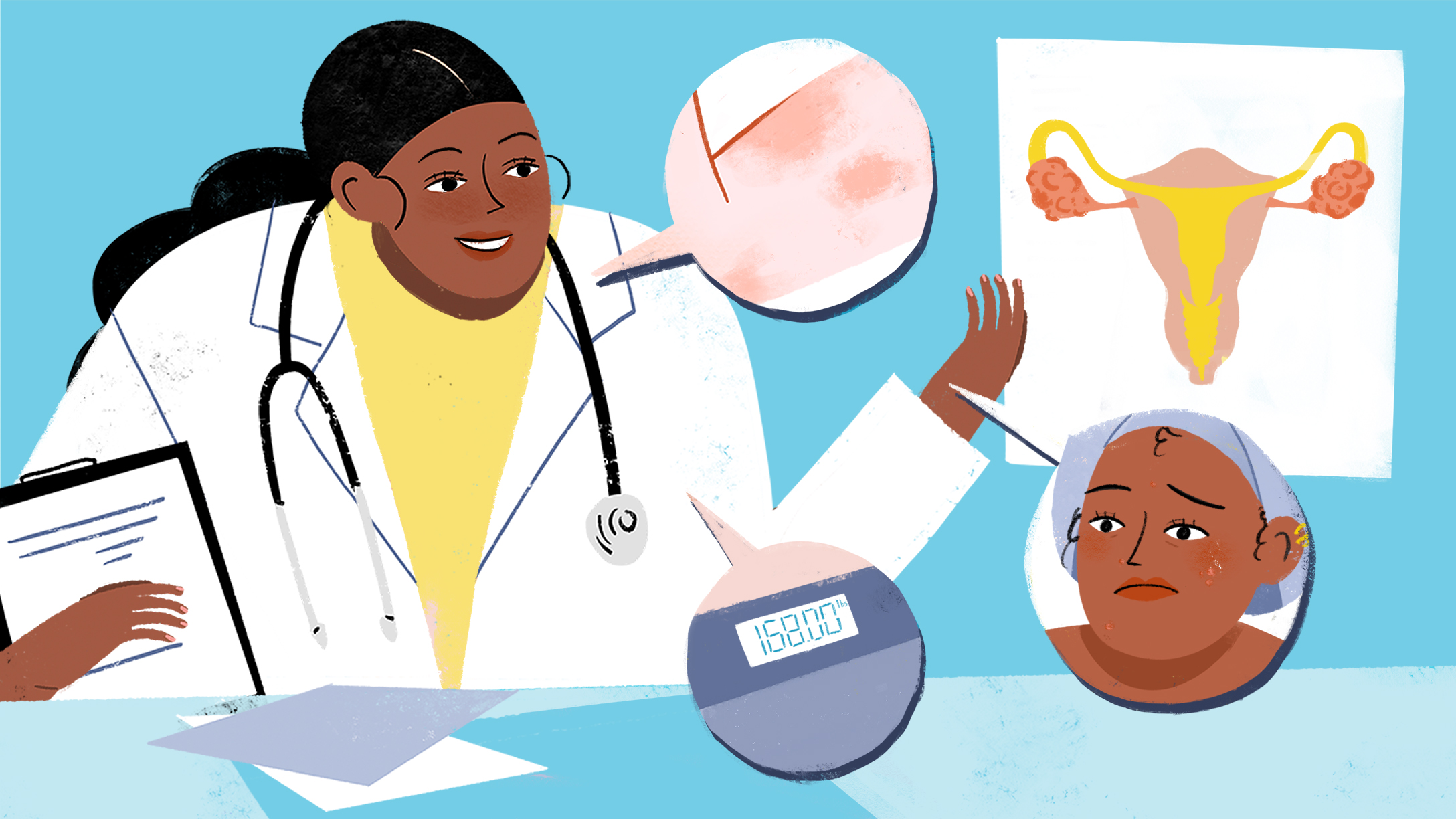
Between menstruation, pregnancy, and menopause, there are certainly a ton of unknowns and trying times when trying to figure out one’s hormonal health.
If you have a presence on social media, or even if you’re just a late-night scroller, you’ve likely seen some chatter about PCOS online, but you might not even be sure what it really means. As Cleveland Clinic notes, polycystic ovary syndrome is a common condition affecting female hormones and can often result in “irregular menstrual periods, excess hair growth,” skin ailments, and fertility issues.
If you’ve struggled with unpredictable periods for a number of years or found it difficult to conceive, it’s a possibility that these are symptoms of PCOS. Keeping that in mind, it’s important to note that we are not your doctor or gynecologist, so be sure to make an appointment with a health care professional if you’re looking for personalized treatments and diagnoses.
More from LittleThings: Hemorrhoids: 10 Things Every Woman Should Know About Those Painful Veins 'Down There'
Let’s dive into everything you need to know about the complex but also common hormone disorder called PCOS.
What can be happening within your body when you have PCOS?

Similar to how everyone has a different set of fingerprints, every single body and its hormone makeup is different, often due to a number of criteria. Especially during a woman’s reproductive years, their hormones can often have a staggering effect on their overall health.
During those tough months when you feel like something is up with your reproductive health or your periods just seem off and you’ve had a recent PCOS diagnosis, you may be wondering what the heck is actually happening in your body to make everything feel so off balance.

The Mayo Clinic notes a good portion of women who have PCOS may develop “many small sacs of fluid … along the outer edge of the ovary,” and these are often referred to as cysts. Cysts can go completely undetected for many individuals or they may cause feelings of bloating, discomfort, or pain.
The health organization explains that these “small fluid-filled cysts contain immature eggs,” which are called follicles. These follicles can “fail to regularly release eggs,” so due to this process, a person is likely not experiencing a normal ovulation phase during their menstrual cycle.
Those with PCOS often start to take notice of their symptoms when they’re looking to get pregnant because their menstrual cycles signify that something is off and they may experience difficulties conceiving naturally.
Common symptoms and signs of PCOS.

Besides looking at a person's menstrual cycle as a clue to what their hormones are doing, especially if they continually have irregular or missed periods, there are a number of common symptoms of PCOS to watch out for.
According to the Endocrine Society, there’s a common symptom that’s connected to a health-related issue that’s called hirsutism. It involves the excess growth of “male” pattern hair that can sprout anywhere from the face to the chest or back. The health organization explains that in women who have PCOS, there will likely be an elevated level of male hormones, also called androgens, that can cause “large, darker terminal” hair to spurt out at a faster rate.

John Hopkins Medicine explains that one of the other common symptoms of PCOS is unexplainable weight gain, especially around the stomach area. If you’ve found that you’ve put on additional weight, especially during your most fertile years, and it’s really difficult to lose those extra pounds, this may be an underlying symptom that’s connected to PCOS.
Some of the other common PCOS symptoms that Healthline explains are:
- Thinning hair
- Ongoing skin issues such as excess oil production or acne
- Patches of pigmented skin
- Skin tags
Some individuals with PCOS may also find themselves experiencing gastrointestinal symptoms, including bloating and abdominal pain.
PCOS and its link to potentially life-threatening health issues.

Another vital component that can affect a lot of women who are diagnosed with PCOS is that they may experience what’s called insulin resistance. The Centers for Disease Control and Prevention explains that PCOS affects between 6% to 12% of women in the United States who are of reproductive age and due to their hormone imbalance, “their bodies can make insulin but can’t use it effectively.”
The CDC notes that if your body has difficulty using insulin, this can lead to Type 2 diabetes, which is not something you want to mess around with. And if you’re pregnant, you might also experience gestational diabetes, which can put both yourself and your baby at risk, especially for high blood pressure.

The health organization notes that there are more links between PCOS and other serious health issues, such as the risk of stroke, heart disease, high cholesterol, and sleep apnea.
Unfortunately for those who are living with this hormone disorder, there is no finite path for PCOS and how it affects their overall health. Keeping all that in mind, it can act as a terrific reminder to stay on top of your hormonal health and check in regularly with your doctor if you’re experiencing any common PCOS symptoms.
How can PCOS be treated?

One thing to remember about PCOS is that even though you might find yourself feeling frustrated or even a little lost with how to properly treat this hormone disorder, there are treatments available that you can discuss with your doctor that should help your symptoms.
Cedars Sinai spoke to Dr. Jessica Chan, who specializes in obstetrics and gynecology, and she noted that depending on your age and what stage of your reproductive life cycle you’re in, there are both “lifestyle changes or medications” that can help those living with PCOS.
She often recommends getting regular exercise as well as a “carbohydrate-restricted diet” to patients with PCOS to help with weight gain and insulin resistance. If you’re someone who misses periods on a regular basis or produces too many male hormones, or androgens, there are also hormonal treatments available to help ensure those symptoms are properly under control for optimal health and fertility.
More from LittleThings: How To Actively Help Your Teen Deal With Their Skin-Picking Or Hair-Pulling Disorder
For a little context, it might be helpful to know that there are celebrities who have shone a spotlight on this disorder and possible treatment options.
Pretty Little Liars actress, Sasha Pieterse, spoke in detail on The Squeeze podcast about how she had been experiencing common symptoms of the hormone disorder long before she was even diagnosed with polycystic ovary syndrome. For instance, she recalls that when she was just 17 years old, she gained approximately 70 pounds for no apparent reason, and had been missing periods for years.
The actress also spoke about how she luckily was able to get pregnant and ever since her pregnancy, her “hormones have been balancing out,” which can happen for some individuals living with PCOS.




